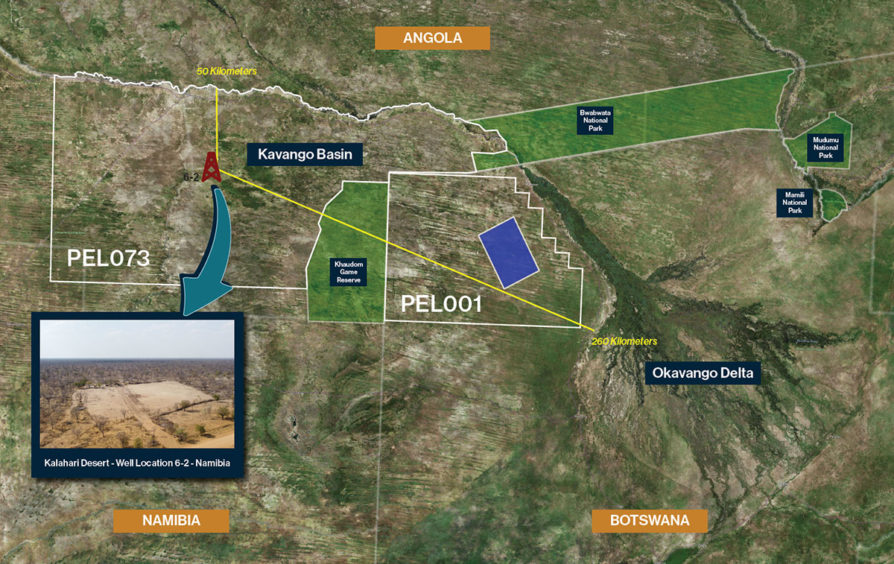
The International Union for Conservation of Nature (IUCN) has called on Botswana and Namibia to increase scrutiny of oil and gas plans in the Okavango Delta.
The IUCN statement noted concerns over climate change expressed by the Intergovernmental Panel on Climate Change (IPCC) and the International Energy Agency’s (IEA) net zero report.
The Okango Delta is a UNESCO World Heritage site, the agency said. It is also the world’s largest wetland of international importance under the Ramsar Convention. The area is home to a number of indigenous people and endangered fauna and flora, it said.
Look at the vegetation around your own #ReconAfrica drill. This is not a desert. It is a sensitive EcoSystem. The lack of basic geological knowledge of $Recaf employees is staggering. #Recaf is once again, misreporting to investors. https://t.co/yp3V3JyKR7 pic.twitter.com/Hg0NrXCIrv
— Real ReconReporter (@ReconReporter) September 2, 2021
The 2016 World Conservation Congress recognised such biodiverse areas as “no-go zones for industrial activities”. This includes oil and gas.
A ReconAfrica representative said the region’s energy industry could be developed in an environmentally and socially responsible manner. This could support “the development and delivery of much-needed economic and social benefits, as well as funding investments in local wildlife and ecological conservation”.
IUCN said Botswana and Namibia should ensure that environmental impact assessments (EIAs) adhere to international standards. The EIAs should be “subject to rigorous and critical prior review and are conducted prior to any further exploration and any future development of oil and gas resources and other extractive activities in and/or affecting the Okavango River basin and its people”.
Indigenous rights
In a note, IUCN said the two countries had issued licences to a Canadian company, Reconnaissance Energy Africa, for exploration in the Okavango region. A commercial discovery could lead to a 25-year production licence.
A seismic survey is under way in Namibia and stratigraphic wells have been drilled. The company plans to carry out more. ReconAfrica will expand its active exploration into Botswana following initial drilling in Namibia.
IUCN reported concerns on potential water impact and the endangering of local ways of life and health. In particular, it highlighted alleged deficiencies in how the company had carried out EIAs on drilling and 2D seismic.
The agency is holding the IUCN World Conservation Congress in Marseille. The convention also saw the launch of the Global Indigenous Agenda, which aims to put local rights at the heart of natural resource discussions.
The statement calls for conservation workers and indigenous people to work together to “protect nature from threats such as unsustainable resource exploitation and climate change”.
ReconAfrica affirmed it would work closely with, and under the oversight of, the Namibian and Botswanan governments. The Canadian explorer said it would also work with “regional and traditional authorities”.
“ReconAfrica is exploring in Namibia and Botswana at the invitation of the national governments. In Namibia, ReconAfrica has a joint operating agreement with the state-owned oil-and-gas company, Namcor. Ultimately, the people of Namibia and Botswana, through their traditional authorities, elected governments, and regulatory agencies, will determine how they will manage their natural resources.”
Updated at 8:47 pm with comment from ReconAfrica.
